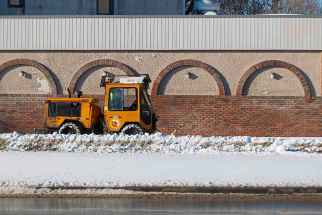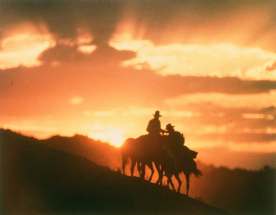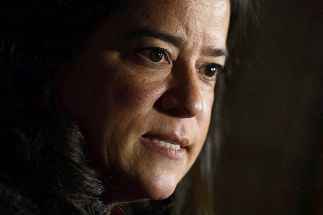Students falling through gaps in Manitoba curriculum, dismayed Holocaust educator says
Read this article for free:
or
Already have an account? Log in here »
To continue reading, please subscribe:
Monthly Digital Subscription
$0 for the first 4 weeks*
- Enjoy unlimited reading on winnipegfreepress.com
- Read the E-Edition, our digital replica newspaper
- Access News Break, our award-winning app
- Play interactive puzzles
*No charge for 4 weeks then price increases to the regular rate of $19.00 plus GST every four weeks. Offer available to new and qualified returning subscribers only. Cancel any time.
Monthly Digital Subscription
$4.75/week*
- Enjoy unlimited reading on winnipegfreepress.com
- Read the E-Edition, our digital replica newspaper
- Access News Break, our award-winning app
- Play interactive puzzles
*Billed as $19 plus GST every four weeks. Cancel any time.
To continue reading, please subscribe:
Add Free Press access to your Brandon Sun subscription for only an additional
$1 for the first 4 weeks*
*Your next subscription payment will increase by $1.00 and you will be charged $16.99 plus GST for four weeks. After four weeks, your payment will increase to $23.99 plus GST every four weeks.
Read unlimited articles for free today:
or
Already have an account? Log in here »
Hey there, time traveller!
This article was published 07/01/2019 (2533 days ago), so information in it may no longer be current.
OTTAWA — Even though it’s part of Manitoba’s public school curriculum in Grade 6, some Manitoba high school students know little, if anything, about the Holocaust.
And a Winnipeg Holocaust educator who spent some time with Grade 10 students at Collège Louis-Riel in St. Boniface, says she finds it “shocking” that teachers at the school are not required to cover the genocide that occurred before and during the Second World War.
“We need the government behind us,” said Belle Jarniewski, executive director of the Jewish Heritage Centre of Western Canada.

“Education is the key, and we’re not doing a good enough job.”
Manitoba teachers are instructed to introduce the Holocaust to sixth-grade students — the youngest in Canada — but groups supporting local teachers say the directive isn’t followed in many instances.
Jarniewski visited the Grade 10 class at Collège Louis-Riel in November with a Holocaust survivor, who asked students what they’d already learned about the genocide, in which six million European Jews were rounded up and sent to their deaths in Nazi concentration camps.
‘Education is the key, and we’re not doing a good enough job’
– Belle Jarniewski, executive director of the Jewish Heritage Centre of Western Canada
The students had read parts of Anne Frank’s diary, but didn’t seem to know about major events during the Holocaust, and nothing about the MS St. Louis, a ship carrying 900 Jewish asylum seekers from Germany who were turned away by Canada and other countries in 1939.
“They were shocked to find out that in Canada, there had been boycotts against Jewish businesses in Quebec,” Jarniewski said. “That there had been restrictions on purchasing property for Jews in certain areas — and not just Jews, but people of colour.
“This was all new to them. And that’s not good.”
Since at least 2006, Manitoba’s social-studies curriculum has mandated that Grade 6 students must learn the definitions of the Holocaust, anti-Semitism and Canada’s internment of minorities during the Second World War.
Manitoba’s school curriculum also cites the Holocaust and domestic anti-Jewish policies as optional teaching examples for Grade 9 and 11 courses touching on social exclusion and the impact of the Second World War. There’s also an optional Grade 12 course that goes into detail about the genocide.
Holocaust education varies widely by province
OTTAWA — Across Canada, there’s a patchwork of how provinces and territories teach students about the Holocaust.
That according to research by the Azrieli Foundation, which helps teachers prepare students before meeting Holocaust survivors.
OTTAWA — Across Canada, there’s a patchwork of how provinces and territories teach students about the Holocaust.
That according to research by the Azrieli Foundation, which helps teachers prepare students before meeting Holocaust survivors.
“Overall exposure to Holocaust education is inconsistent,” wrote Toronto-based associate Stephanie Corazza.
“There is great variety in grade levels and approaches to teaching the Holocaust, and often the subject is not given very much attention, or only insofar as it relates to Canada and the war.”
Corazza provided the Free Press with a summary she compiled last year of how all 13 jurisdictions teach the topic, which the newspaper cross-referenced with the original curriculum documents.
In Nova Scotia and Prince Edward Island, students are required to learn about how Canada reacted to the Holocaust in Grade 8. In the territories, the topic only comes up in Grade 11.
In Manitoba, Grade 6 students are required to be able to define the Holocaust and antisemitism, though local advocates say that’s often not followed.
In other provinces, the Holocaust is invoked as an example to illustrate historical injustices, often listed alongside the Holodomor, other genocides or about groups of people the Canadian government interned.
Corazza added that educators often go beyond whatever their province requires or suggests that students learn about the Holocaust:
“Many teachers find a way to include this subject even if it is not included in their curriculum.”
— Dylan Robertson
It’s not clear why the students Jarniewski met hadn’t learned about the Holocaust four years earlier.
The school falls under the direction of Division scolaire franco-manitobaine, which acknowledged that its high-school teachers don’t always include the Holocaust in their teaching.
“The social sciences curricula give some flexibility on what specific historical events are taught, but (they) generally teach principles of social justice,” vice-director René Déquier told the Free Press in an email, adding what matters most is that students can recognize how terrible social injustices are created, and what role they can play in avoiding them.
“Unfortunately, in the world and in Canada, there are many examples of socially unjust events.”
Jarniewski called that logic “shocking,” because the Holocaust is “the prototype for genocide” that led to the existence of the word “genocide,” as well as international efforts to protect human rights.
The Winnipeg School Division, the city’s largest, says it prescribes the Holocaust as part of a human-rights unit in all Grade 9 English classes.
Both Pembina Trails and River East Transcona School Divisions say they stick with the Grade 6 requirement. The Free Press did not hear back from the other Winnipeg — Louis-Riel, Seven Oaks and St. James-Assiniboia — Monday.
A spokeswoman for Manitoba Education and Training wrote that the department has collaborated with Jewish groups to host workshops for teachers, including one launched last fall at the Asper Jewish Community Campus.
“Human rights and social justice are key themes in social studies curricula throughout Canada,” wrote the spokeswoman, who did not give her name.
‘The social sciences curricula give some flexibility on what specific historical events are taught, but (they) generally teach principles of social justice’
– Division scolaire franco-manitobaine vice-director René Déquier
Across Canada, there’s a patchwork of how provinces teach the Holocaust — if at all and at what age — according to research by the Azrieli Foundation, which helps teachers prepare students before meeting survivors.
Jarniewski said that will only improve when teachers’ colleges, school boards, the provinces and Ottawa make it a priority.
She said governments “don’t need to reinvent the wheel,” but that teachers are often denied a half-day leave to attend workshops that prepare them to deal with difficult subjects, such as the Holocaust.
“There is a hunger out there for quality resources — which are there,” she said. “Particularly today, in the atmosphere of anti-immigrant sentiment, rising anti-Semitism and rising racism.”
Manitoba’s Grade 6 curriculum also mandates that students learn about “the life and accomplishments of William Lyon Mackenzie King,” which Jarniewski found “very problematic, given he oversaw the decision to turn back the MS St. Louis. The curriculum does later suggest an exercise “including historical evidence of his failures and accomplishments as prime minister.”
Jarniewski is involved with the International Holocaust Remembrance Alliance, which tracks how the genocide is taught across more than 50 countries. The Canadian government joined the group in 2009, and she said it has since become clear that other developed countries have national requirements that they take time to enforce.
It’s just one gap in how Winnipeggers learn their history, she said.
During her presentation to the Grade 10 students last year, many had no clue about racial discrimination in accessing services, which was documented until the 1980s in Winnipeg.
“We have to reconcile with our own history,” she said.
dylan.robertson@freepress.mb.ca








